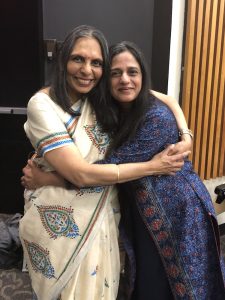(May 16, 2023) Even as a young child, living in Vishakapatnam, the seaside city of Andhra Pradesh back in the early 60s, Dr. Neeli Bendapudi had just one dream – that of becoming a world-class educator. As the eldest of three daughters in a family battling poverty, she witnessed the collective efforts of her extended family to send her father to the United States for a doctorate in English literature at the University of Kansas. The preciousness of this opportunity was not lost on the young educator.
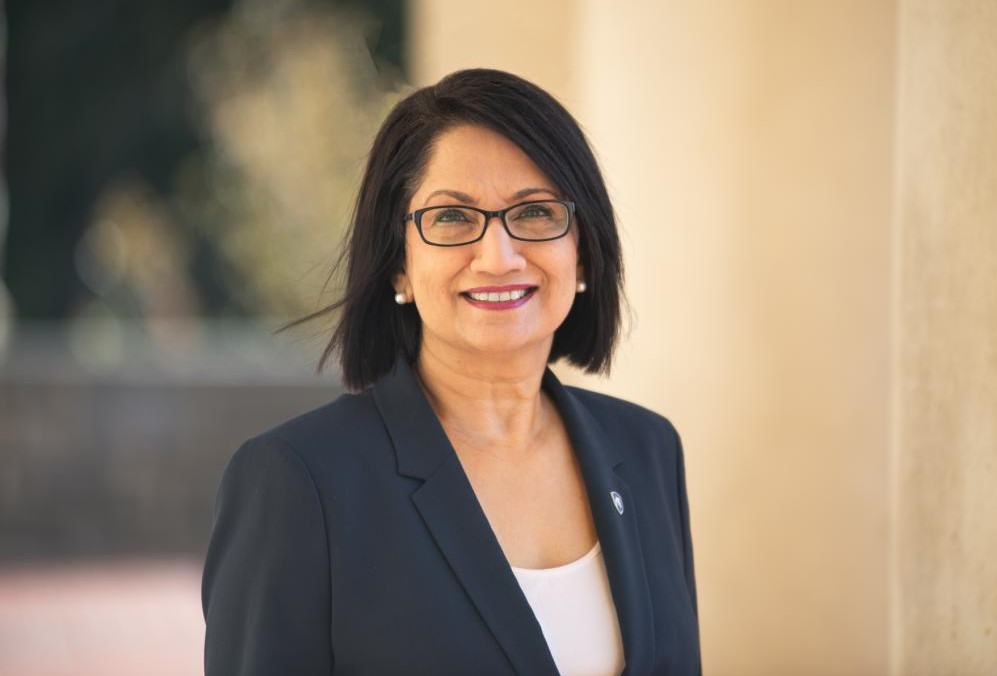
Defying all the odds that came her way, Dr. Bendapudi became the first woman and the first non-white person to lead the Pennsylvania State University in 2022. The educator, who values nothing more than her students and their future, brings to the table a wealth of life experiences and a strong set of values that will shape her priorities as a leader. “To me, for anyone in this job, students have to come first. We’ve got to focus on our students and student success,” The Global Indian educator said in an interview, adding, “I want to make sure that every student, no matter who they are, when we say ‘We Are’, they know that they are part of the ‘We’.”
The power of education
Dr. Bendapudi’s childhood in the Indian state of Andhra Pradesh was marked by her family’s hardship. The educator called herself a “living testament to the transformative power of higher education.” Before her family came to the United States from India, she said, “We never had running water, or the confidence that you could just turn on a switch and there would be electricity. These things, no question in my mind, are in my life because of higher education. It’s really a mission, a goal, a challenge, an opportunity to create those opportunities for the next generation.”
During her father’s four-year stay in the United States, their connection was largely confined to infrequent letters and a telephone call every few months made from the home of a neighbour, who had a phone. Despite her tender age, the educator distinctly recalls the difficulty of being separated from her father, while simultaneously recognising the significance of his endeavours. “In India, the family as a unit is super important, and the idea was, ‘We need to make a better life for the entire family’,” she said in an interview. “It was drilled into me, all the sacrifices that go into getting higher education, because it’s not just about you, it’s about the extended family. My father came back after four years with a Ph.D., and it changed the trajectory of our family’s lives. So I decided at a very early age that higher education would be my path,” Dr Bendapudi added.
After finishing her schooling, the educator acquired her undergraduate degree in English and her MBA from Andhra University in India, where her father held a professorship. It was during these years that she encountered and tied the knot with Venkat Bendapudi, now her spouse for 38 years. Both decided to chase their doctorate degrees in the United States and after being courted by numerous universities, they opted to enroll in her father’s alma mater, the University of Kansas.
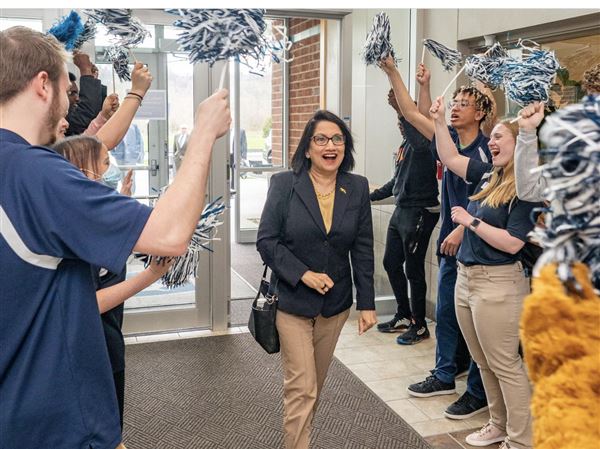
Following her steps, her two sisters also pursued their higher education at the same university. Eventually, even Bendapudi’s mother undertook the journey of academia and achieved her doctoral degree. Sharing that her mother was the inspiration behind all her achievements, the educator said, “My mom is really a hero. While we were all in school, she also got her Ph.D. Having three small children, she didn’t get to do it when everybody else did, but she knew the importance of higher education.”
The world of opportunities
Dr Neeli Bendapudi came to the US with one major goal – to become an educator. And her choices were again steered by her upbringing in India, having personally witnessed the transformation that occurred when Indian markets embraced competition, stopping monopolies from restricting affordability and accessibility for the less affluent consumers.
In 1994, the educator achieved her doctorate in marketing with a focus on consumer behavior. She began her academic career at Texas A&M, proceeded to instruct at Ohio State University, and eventually rejoined the University of Kansas in the roles of Business School Dean, then Provost, and Executive Vice Chancellor. “What I truly believe is that competition and free markets help everybody. Watching that transition — I wanted to study that. Marketing became something that fascinated me,” the educator said. In 2005, Dr. Bendapudi earned her American citizenship. “That’s something my father instilled in me as well—this reverence and gratitude to this country. I hope all young people in this country get to watch a naturalisation ceremony. They won the genetic lottery by being born in this country.”
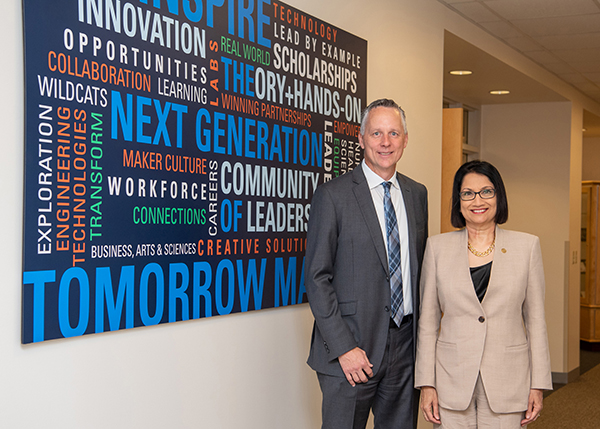
The educator warmly remembers the honor of being asked to deliver a speech at the naturalization ceremony where her parents obtained their citizenship in 2011. During her speech, she referred to the United States as “the most extraordinary nation on the planet,” challenging the attendees with the words, “I invite you to mention a single other nation that has such long waiting lists of people yearning to identify themselves as its citizens.”
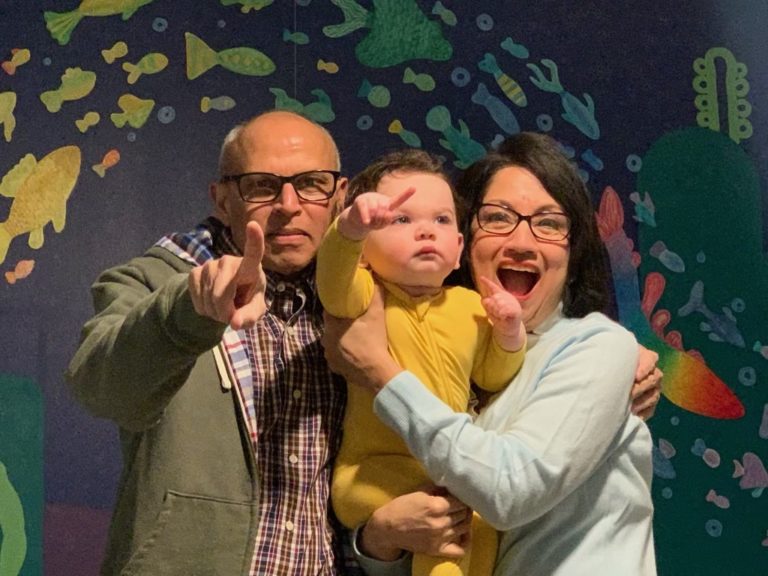
President Neeli Bendapudi and her husband, Venkat, with their 14-month-old grandson, Arjun
After working at Kansas University for about two decades, Dr. Bendapudi took on the role of President at the University of Louisville, in 2018. Throughout her journey, she held the position of executive vice president at Huntington Bank for several years, and she has also spent significant time consulting outside the academic sphere, working with entities such as AIG, Procter & Gamble, Deloitte, and the U.S. Army. “I’m very proud of that background. I knew I wanted to be a professor that could talk about how this applied in the real world,” the educator said, adding, “To me, you would not want to be taught medicine by a doctor who said, ‘I’ve never seen the heart, but I’ve read the book.’ Likewise, when teaching business, I did not want to be a professor that said, ‘I’ve never done it.’ Not just teaching in the abstract, but connecting and working side-by-side with business people was important to me.”
Rising to the top
Dr. Bendapudi officially stepped into her role as the 19th president of Penn State on May 9, 2023. Although she has spent the preceding months working intensively with former President Eric Barron, along with various administrators and trustees to grasp the intricacies of this expansive University, the educator is also lean on a broad spectrum of personal experiences that have equipped her for this fresh responsibility.
As the educator assumed the leadership at Penn State, her interpretation of the University’s mandate is crystal clear: “Enhancing lives by producing and spreading knowledge.” To achieve this mission, she has established an articulated set of objectives. Her emphasis on students is far from mere rhetoric. Her genuine concern is observable in the way she interacts with them. At a Penn State men’s ice hockey match in January, she made a special effort to personally meet some of the students present, inquiring about their fields of study and their experiences with authentic curiosity.
“The truth is, when I interact with every single student, I cannot help thinking about the potential. You never know what this person is going to go on and do, and what this education is going to mean for that individual. So I love talking to students. My second big focus will be on faculty and staff—making sure we support our faculty and staff, that we are competitive, that we attract them and retain them,” she said during her speech at the event, adding, “My goal is to continue to foster that sense of belonging for every student, employee, and alumni, and help them find a way to make this special place their own.”



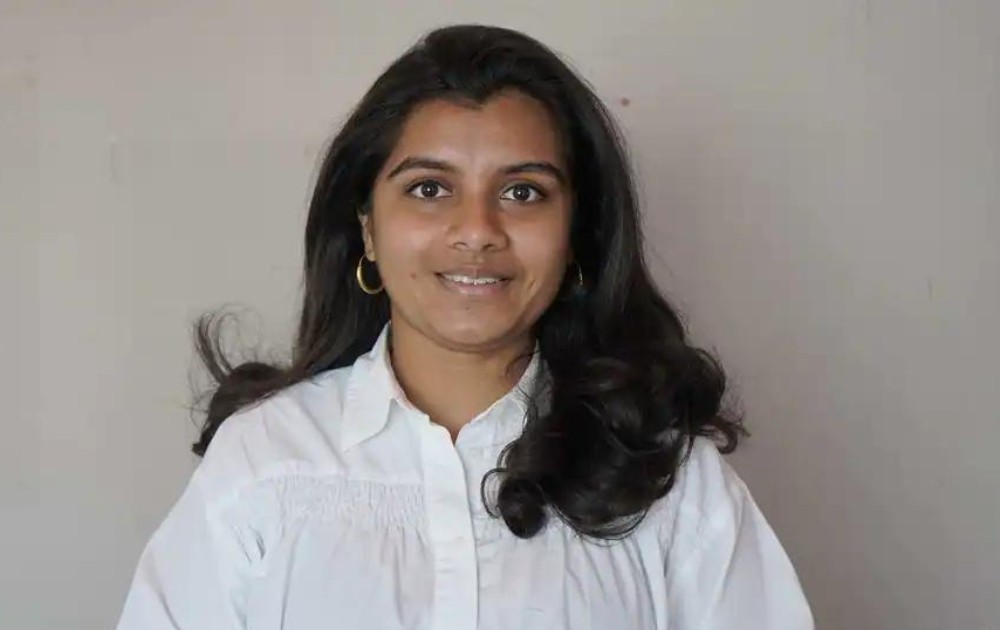

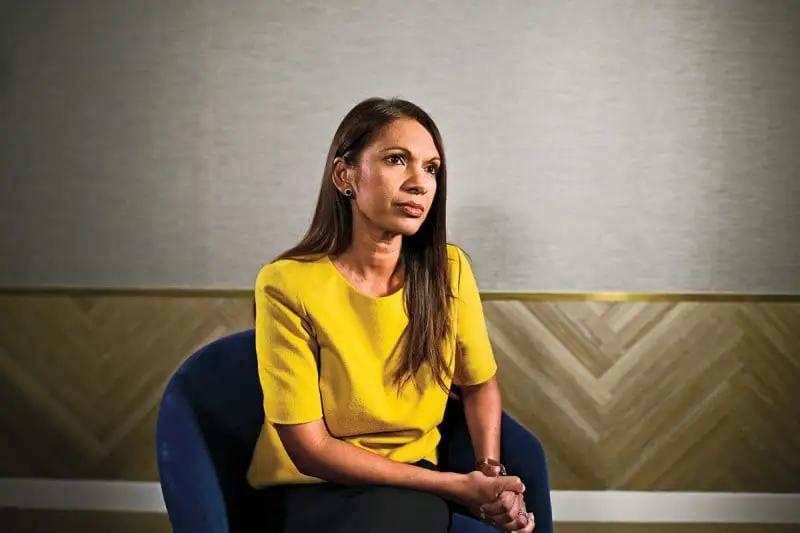 Gina Miller | Photo:
Gina Miller | Photo: 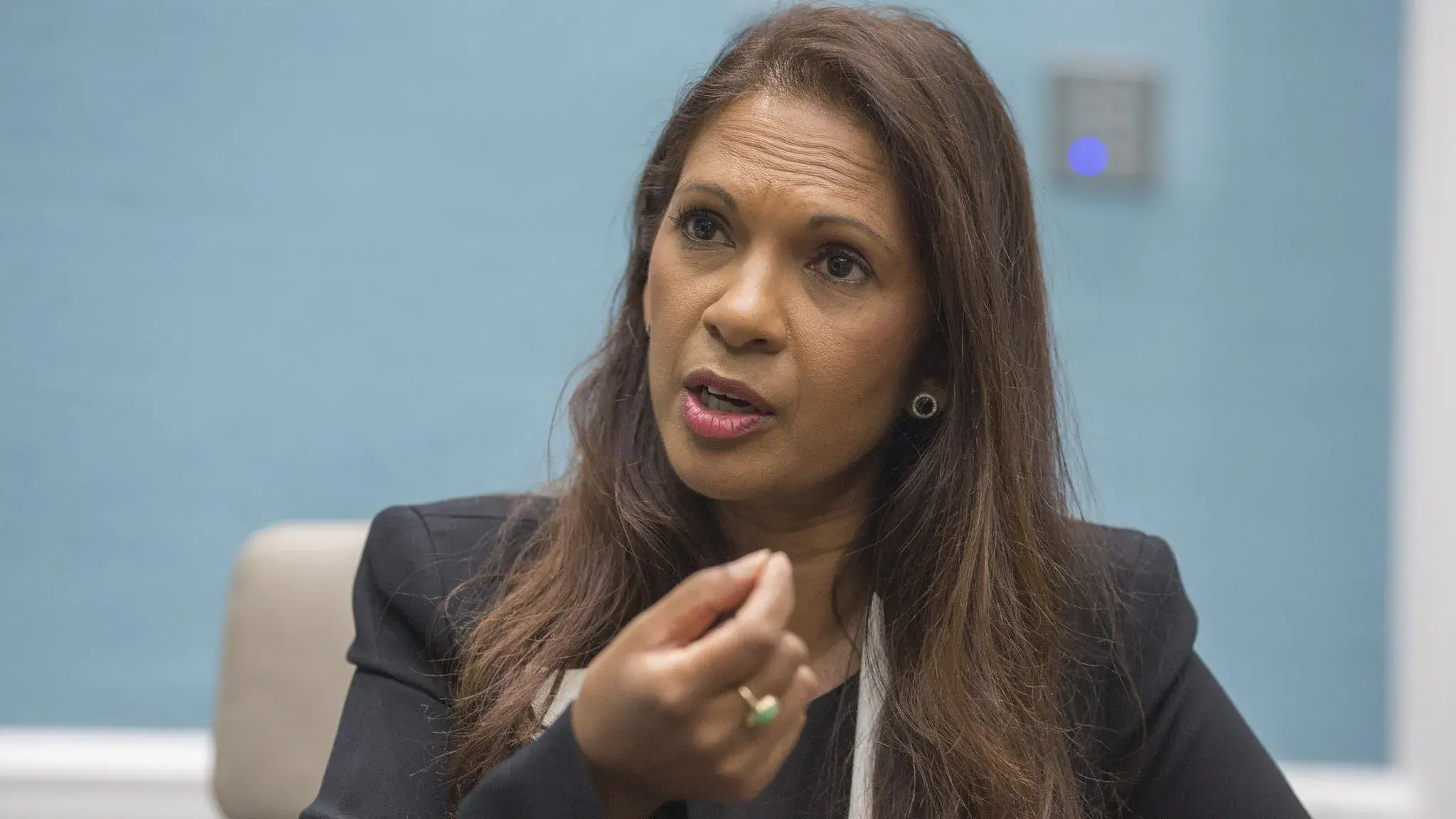
 Gina and Alan Miller[/caption]
Gina and Alan Miller[/caption]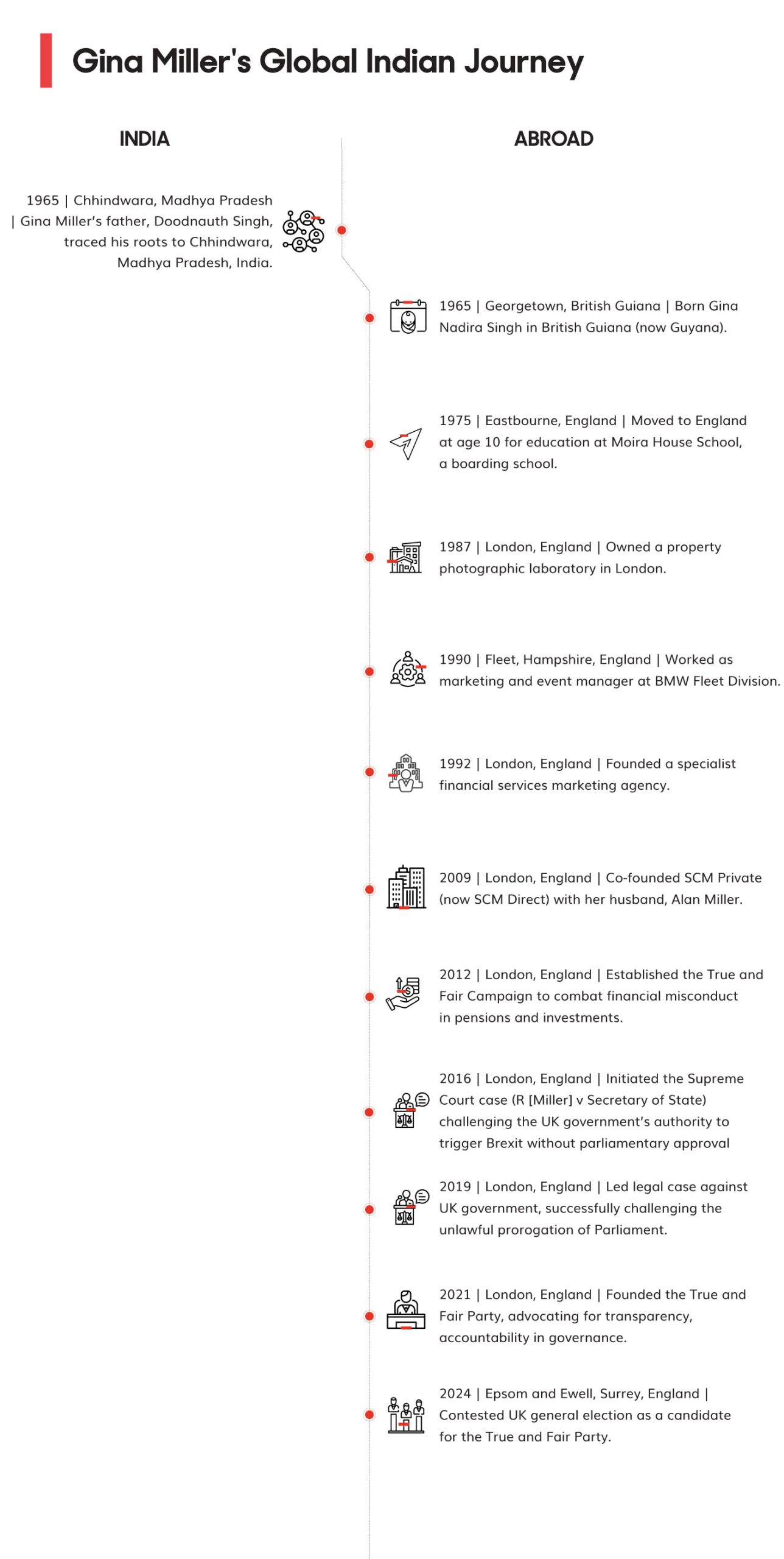
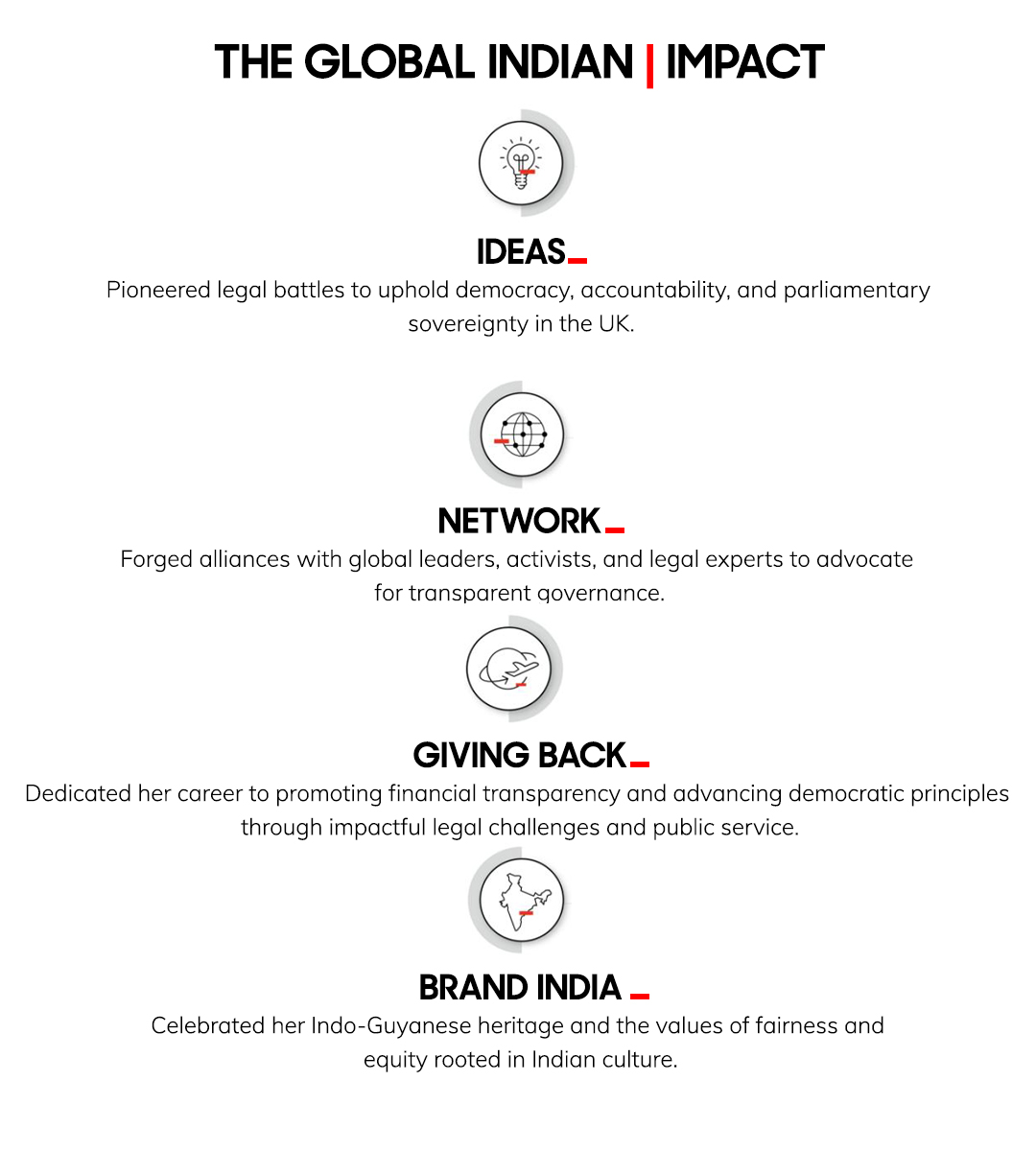
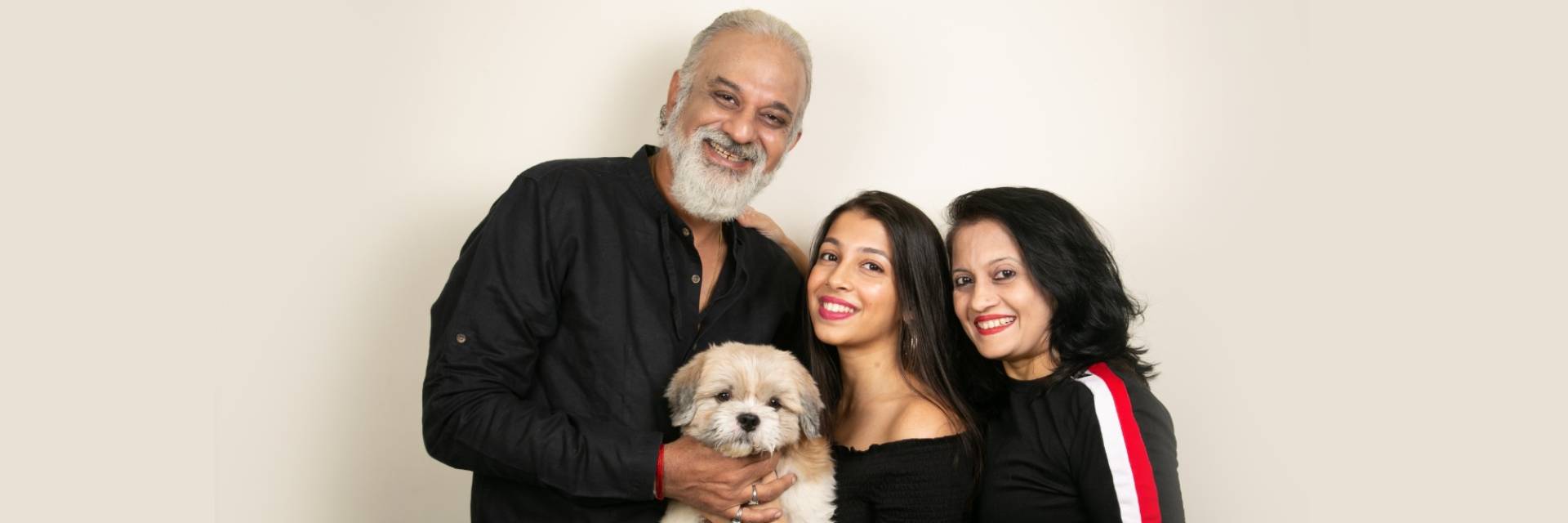
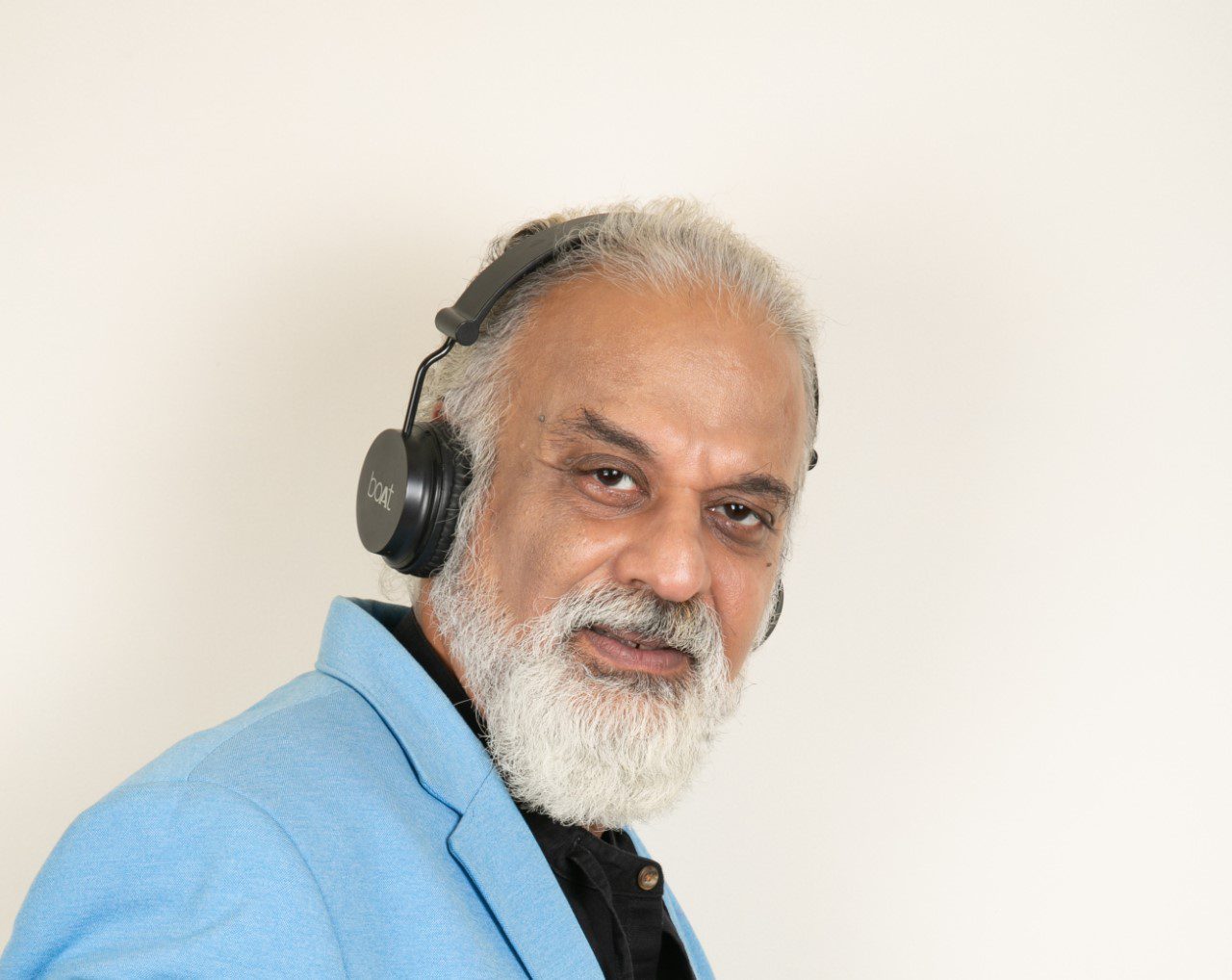
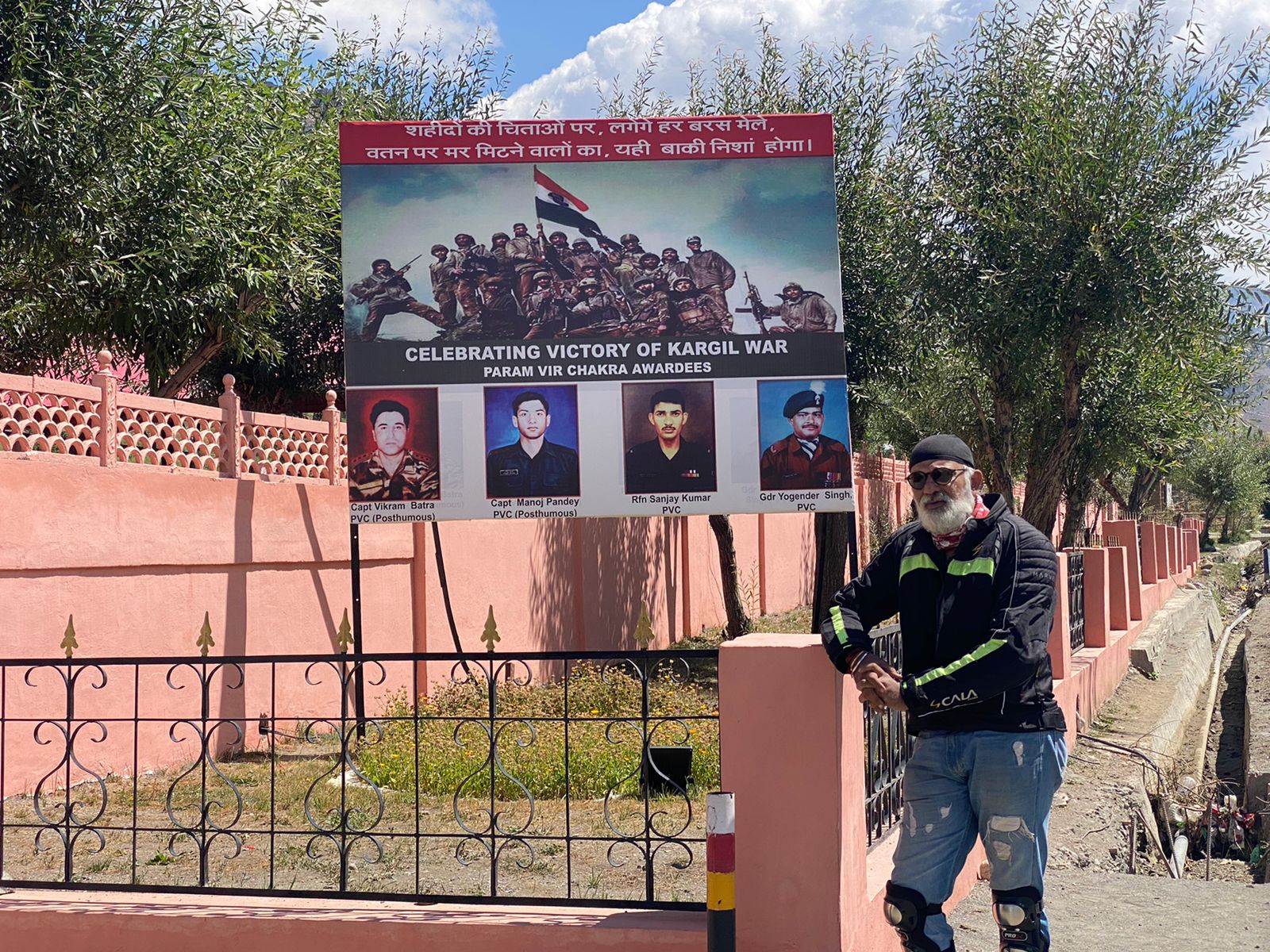
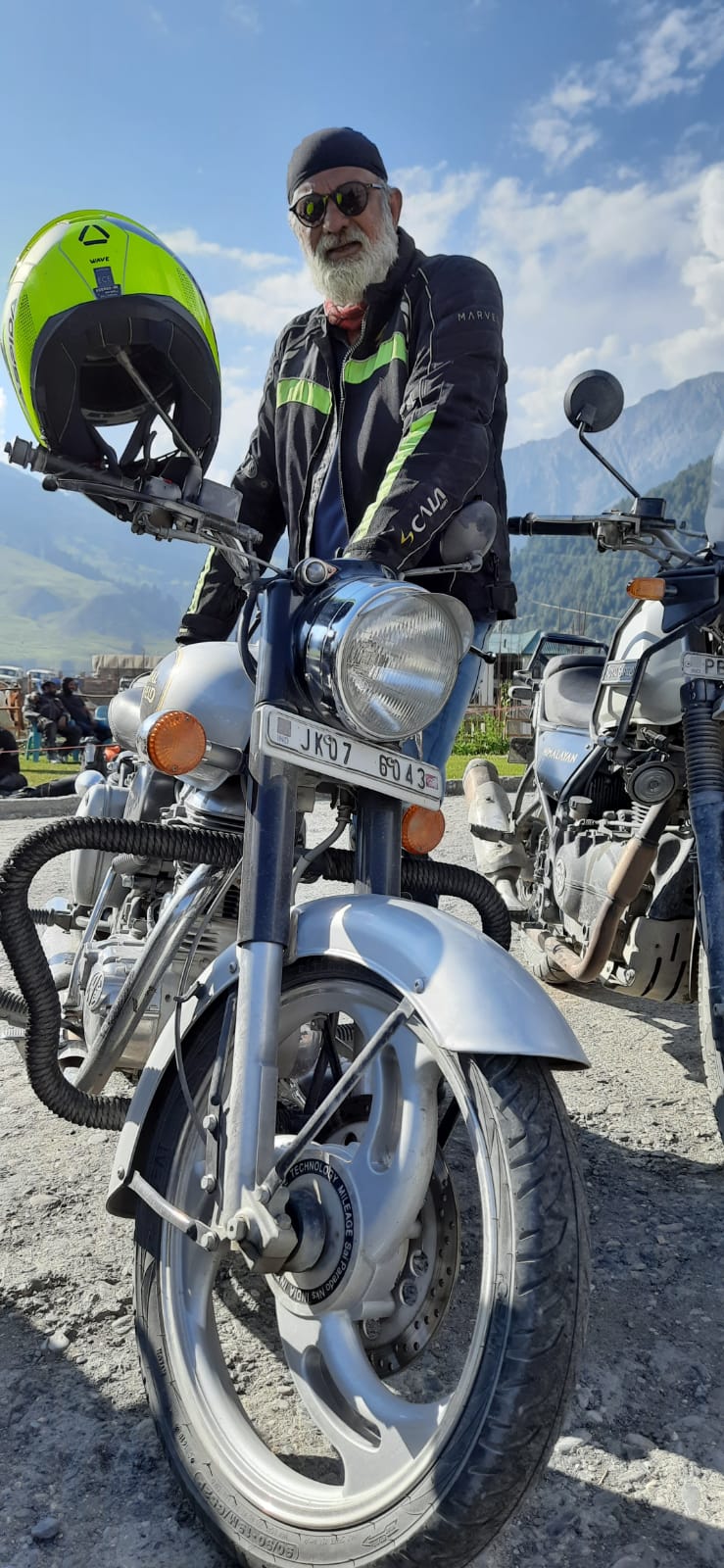 Roshan Mansukhani loves biking across India[/caption]
Roshan Mansukhani loves biking across India[/caption]
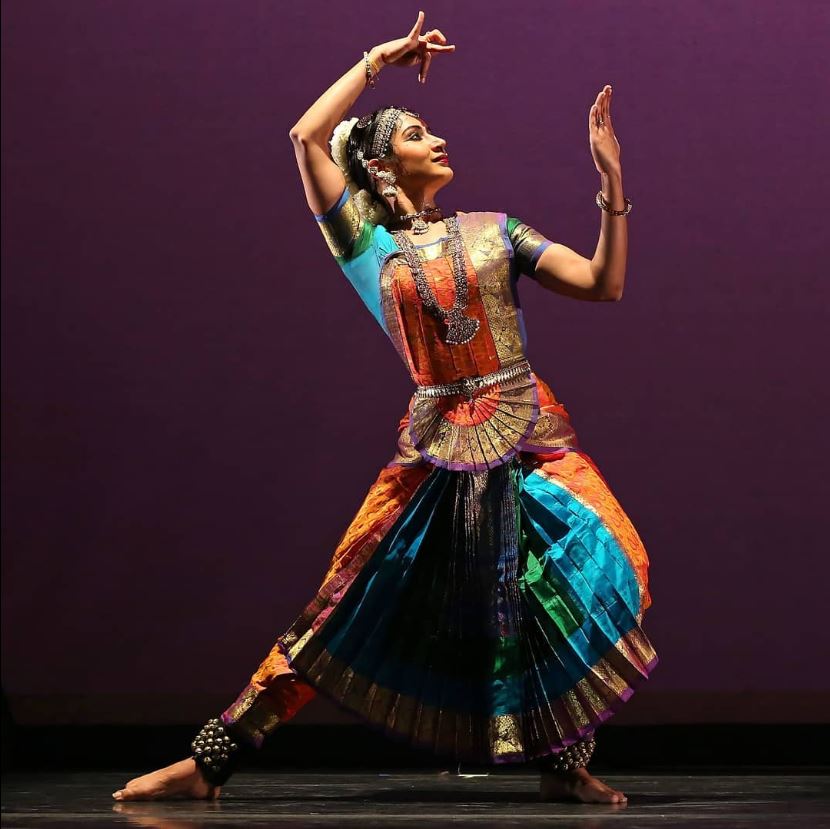
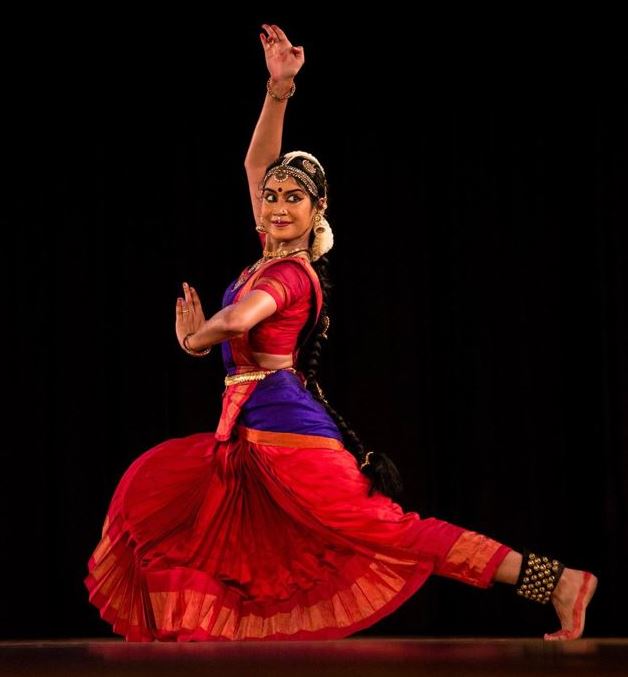
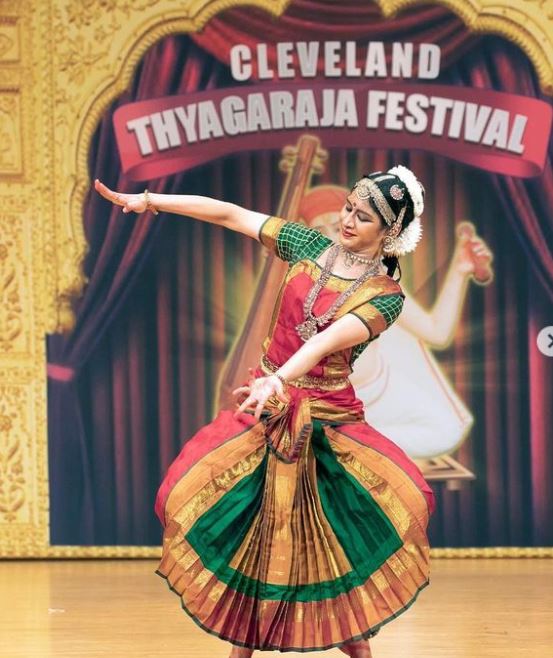
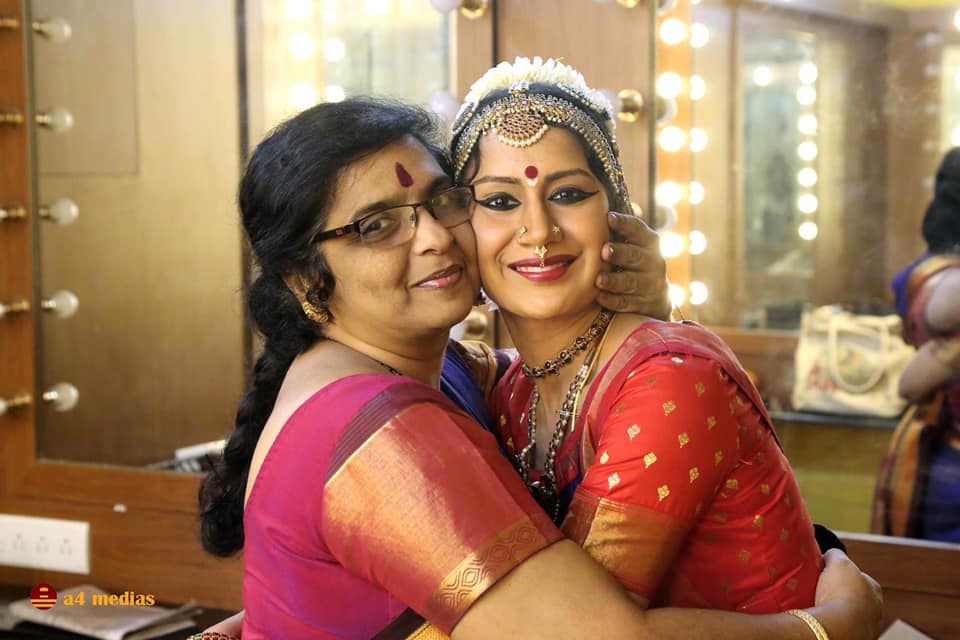 Aishwarys Balasubramanian with her guru, Anitha Guha[/caption]
Aishwarys Balasubramanian with her guru, Anitha Guha[/caption]
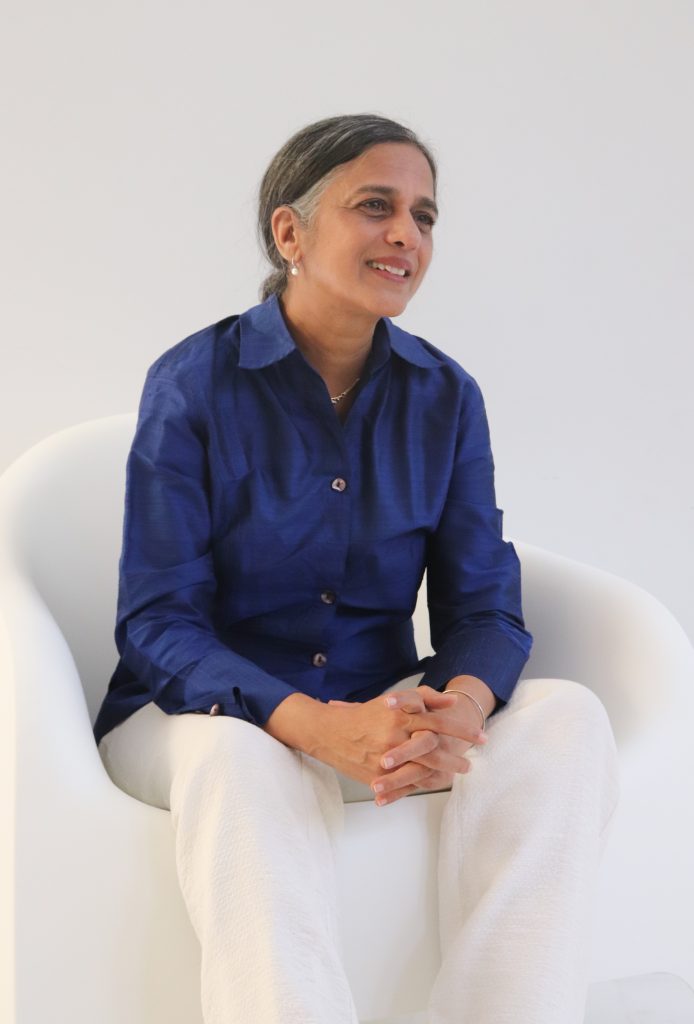 Usha Akella[/caption]
Usha Akella[/caption]
